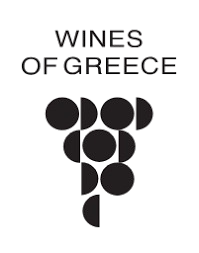Alternative Vessels in the Winery: Exploring New Paths in Greek PDO (ΠΟΠ) and PGI (ΠΓΕ) Wines
When we talk about wine, the concepts of maturation and aging often evoke images of oak barrels and cellar-aged bottles patiently awaiting the passage of time. But in today’s Greece, the landscape is far more vibrant and multifaceted. Within the PDO (ΠΟΠ) and PGI (ΠΓΕ) zones, a new generation of winemakers is experimenting, innovating, and reintroducing traditional grape varieties through alternative aging methods—always with the goal of highlighting the true character of the wine and its origin.
Of course, barrels—whether small or large, made from French or American oak—still hold an important place, used to impart structure, spicy notes, and aging potential. Yet today, producers often prefer the influence of wood to play a more subtle role, in the background. They opt for more neutral barrels, lightly toasted, or larger foudres and older barrels that don’t mask the fruit’s character, allowing the terroir to shine through.
Others turn to clay amphorae or concrete tanks, methods with ancient origins and modern relevance. Assyrtiko, for instance, particularly in the PDO Santorini (ΠΟΠ Σαντορίνη) zone, reveals fascinating expressions when matured in these vessels. Similarly, Savatiano, the key variety in PGI Attiki (ΠΓΕ Αττική), and Malagousia gain depth and texture, allowing the fruit to shine without being overshadowed. For red varieties such as Limniona (PGI Tyrnavos – ΠΓΕ Τύρναβος) and Xinomavro (PGI Imathia – ΠΓΕ Ημαθία), these alternative approaches enhance the expression of both variety and terroir.
Winemakers are also experimenting with blending different aging vessels. Tanks, barrels, and amphorae now coexist in many wineries and are combined to craft specific wine styles. In zones such as PDO Dafnes (ΠΟΠ Δαφνές) and PDO Naoussa (ΠΟΠ Νάουσα), the thoughtful use of diverse vessels reveals different facets of the same grape. In PGI (ΠΓΕ) areas, the creative freedom offered to producers opens up new paths, often leading to wines with distinctive freshness, layered textures, and a long, clean finish.
What stands out in the Greek wine landscape is a willingness to experiment with respect for the grape and its environment. Here, aging is a way to enhance complexity, soften structure, or preserve energy. The wines become softer and round or they gain an immediate drinkability.
From PGI Crete (ΠΓΕ Κρήτη) to PGI Macedonia (ΠΓΕ Μακεδονία), and from PGI Cyclades (ΠΓΕ Κυκλάδες) to PGI Peloponnese (ΠΓΕ Πελοπόννησος), Greek vineyards demonstrate that tradition and innovation can coexist—not to impress, but to express the true essence of place and variety with honesty and precision. This is the new face of Greek wine: a world where the many aging vessels available to producers become tools of finesse, yielding wines of clarity, balance, and character.

